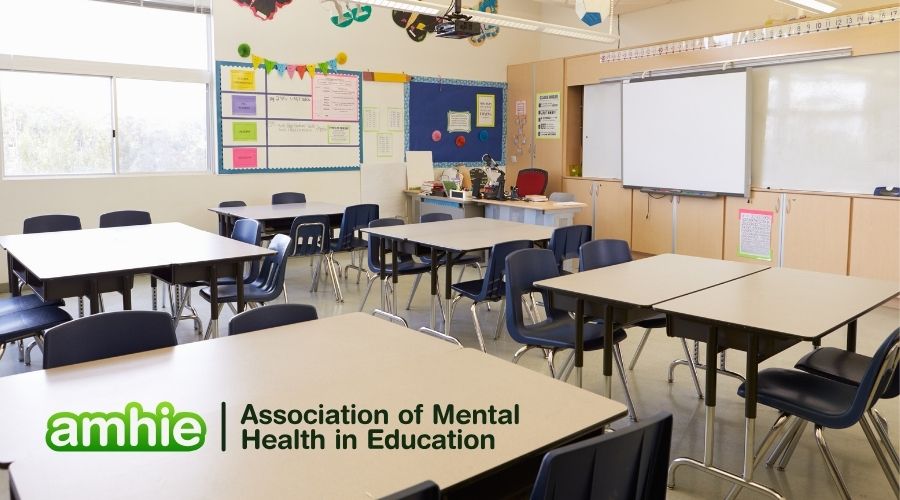
New research from the University of Manchester highlights how isolation can be damaging to pupil wellbeing.
A compelling new study from the University of Manchester, analysing the #BeeWell dataset of over 34,000 pupils across 121 Greater Manchester secondary schools, has cast a critical light on the prevalence, discriminatory application, and detrimental outcomes of internal exclusion (isolation) in UK schools. The findings demand a fundamental shift in school disciplinary practices and policy intervention to better align with national objectives for student wellbeing.
The research reveals that internal exclusion is a ubiquitous practice, with 8.3% of pupils—approximately 1 in 12—reporting being isolated at least once a week. This widespread usage translates into significant lost learning time, with internally excluded pupils spending an average of 8.44 hours per week in isolation, equivalent to more than a full school day. Crucially, the analysis suggests this is a punitive measure, not a preventative one, as pupils were more likely to be isolated in schools with higher suspension rates, thus contradicting the practice’s assumed function of avoiding more serious sanctions.
More alarmingly, the study uncovers compelling evidence of discriminatory application, even after accounting for self-reported behavioural difficulties. Vulnerable and marginalised groups are disproportionately targeted. A pupil with an Education, Health and Care (EHC) plan is over twice as likely to be isolated than a peer without one, and those eligible for Free School Meals (FSM) are more than one and a half times more likely. Disproportionate rates were also found among older pupils, boys, LGBTQ+ youth (nearly twice as likely to be isolated as cisgender heterosexual girls), and pupils from Black, Mixed, and Asian ethnic groups compared to their White British peers.
These findings are directly relevant to current UK trends in mental health in education. While the government and schools are increasingly focused on student wellbeing, the study indicates that a key disciplinary tool actively undermines it. Internal exclusion was found to significantly worsen both school belonging (d = −0.15) and relationships with school staff (d = −0.18). For internally excluded girls specifically, the practice contributed to significantly worse mental wellbeing (d = −0.07). In an era where UK schools are grappling with rising pupil anxiety, stress, and mental health challenges post-pandemic, a practice that harms these crucial outcomes warrants immediate attention.
Key recommendations:
1. Implementing Alternative, Positive Behaviour Management Strategies
Schools are strongly encouraged to replace traditional, isolating measures with proactive, evidence-based approaches that emphasise social, emotional, and relational development.
- Invest in Positive Behaviour Systems: Allocate dedicated funding to implement comprehensive systems such as:
- Positive Behaviour Support (PBS): Frameworks focused on defining, teaching, and reinforcing expected behaviours.
- Restorative Justice Practices: Methods that prioritise repairing harm, rebuilding relationships, and fostering accountability over mere punishment.
- Proactive Internal Inclusion Units: Establish resource-rich, therapeutic units that offer planned, targeted support and tailored interventions for pupils at high risk of exclusion, focusing on skill development rather than passive isolation.
- Embed Trauma-Informed Practice: Provide ongoing, high-quality professional development for all staff on trauma-informed practice. This training should enable educators to recognise that challenging behaviour may often be a manifestation of underlying trauma or Adverse Childhood Experiences (ACEs) and to respond with empathy and therapeutic understanding.
- Develop Individualised Support Plans: Move beyond generic responses by creating detailed, individualised support plans that focus on understanding, addressing, and preventing the root causes of challenging behaviour, ensuring interventions are specific to the pupil’s needs.
- Integrate Social and Emotional Learning (SEL): Formally integrate SEL into the curriculum, particularly at Key Stage 3 and 4. This integration should systematically equip young people with essential skills in self-regulation, empathy, conflict resolution, and responsible decision-making.
2. Reviewing School Culture and Practice
School leaders must undertake a critical evaluation of existing disciplinary structures to foster a culture of genuine inclusion, equity, and transparency.
- Critical Evaluation of Exclusionary Measures: School leadership teams must rigorously evaluate the efficacy of practices like internal exclusion. The review should assess whether these measures truly prevent more serious disciplinary actions, or if they contribute to long-term positive behaviour change, or simply defer the underlying issue.
- Ensure Fairness and Transparency in Application: Conduct an audit of how disciplinary measures are applied across different pupil demographics and staff members to identify and immediately rectify any inconsistencies or inequities. Furthermore, ensure young people are made fully aware of the precise conditions, procedures, and rationale for the application of any exclusionary measure.
- Prioritise a Culture of Inclusion and Equity: Actively cultivate a supportive school culture where inclusion and the holistic wellbeing of all young people are explicitly valued above all else.
- Enhance Student Voice: Systematically incorporate pupil feedback into the development and review of disciplinary practices to ensure policies are relevant, understood, and perceived as fair.
- Partner with Parents: Proactively engage parents and carers as essential partners in the co-creation and implementation of behaviour and wellbeing policies.
Read the full study:
Thornton, E., Cheng, Q., Demkowicz, O. & Humphrey, N. (2025). Lost learning: Prevalence, inequalities and outcomes of internal exclusion in mainstream secondary schools. British Educational Research Journal, 00, 1–26. https://doi.org/10.1002/berj.70049
Get the tools you need to boost wellbeing at your setting with AMHIE Training:

AMHIE’s DfE-aligned training equips your whole-school team to achieve mental health excellence and secure outstanding inspection outcomes. The clear ROI lies in transforming your core school culture and practices from reactive support to proactive prevention. This strategic shift allows your staff to confidently move away from traditional sanctions and toward implementing alternative, positive behaviour management strategies, creating a supportive learning environment. This is your evidence-based pathway to compliance and long-term well-being success. Join over 1,500 trained leaders who trust AMHIE.
Ready to embed a positive whole-school approach? Explore the full AMHIE training offer and secure your team’s place today: Visit the AMHIE Training Page

